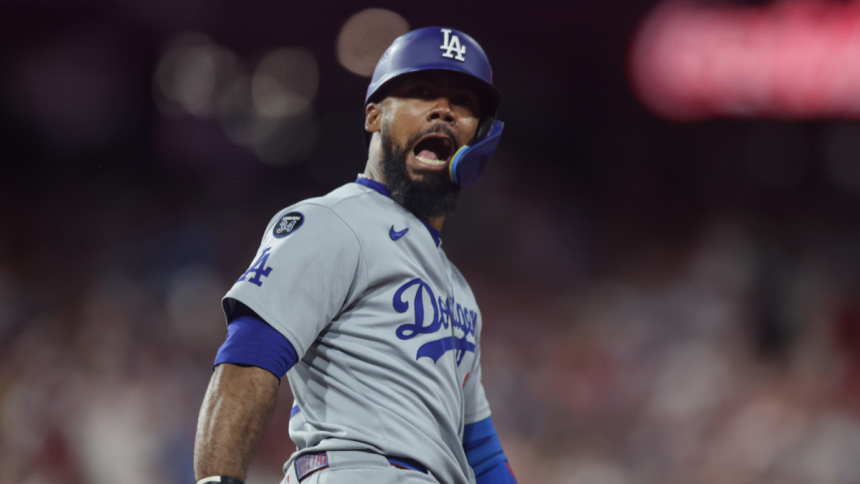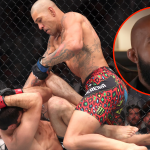Major League Baseball’s 2025 postseason resumed Saturday with Game 1 of all four Division Series: Cubs vs. Brewers, Yankees vs. Blue Jays, Dodgers vs. Phillies and Tigers vs. Mariners. All four home teams — the Brewers, Blue Jays, Phillies and Mariners — are playing for the first time in these playoffs after having byes through the Wild Card Series. The LDS round is of the best-of-five variety. The winners will advance to the League Championship Series, where they’ll fight for this year’s pennant.
The Brewers kicked off the day with a blowout of their division rivals, beating the Cubs 9-3 after knocking out Chicago starter Matthew Boyd in the first inning. The Blue Jays, meanwhile, took down their own division rivals in a dominant 10-1 win over the Yankees, their first postseason win since 2016. That also marked the largest Yankees’ loss in a playoff game since 2018, when they lost by 15 to the Red Sox in Game 3 of the ALDS. The Dodgers staged a comeback win behind Shohei Ohtani, making his postseason pitching debut, to beat the Phillies.
To properly recap the day, we’ve broken down the winners and losers from all four games.
Winner: Fans of normal extra innings
There is no automatic runner in extra innings in the postseason. It’s old school baseball, which I get the sense most fans prefer. The Tigers scored the go-ahead run in the top of the tenth with a rally they had to build from scratch. Spencer Torkelson worked a leadoff walk, advanced to second on a wild pitch, then scored on Zach McKinstry’s two-out single back up the middle.
A line drive in the box score, that is. The Tigers will take it. The Mariners could only muster a two-out single against Keider Montero, pretty much the last guy in Detroit’s bullpen, in the bottom of the 11th.
There were a few 10-inning games last postseason, including Game 1 of the World Series (Freddie Freeman’s walk-off grand slam). Game 1 Saturday night was the first 11-inning postseason game since Game 1 of the 2023 World Series, which Adolis García won on a walk-off homer. The last postseason game longer than 11 innings was the 18-inning marathon in Seattle in the 2022 ALDS.
I’m a fan of the automatic runner in extra innings. I understand I’m in the minority, but I enjoy the action it creates. I do enjoy going back to the old way we used to live every once in a while though, which regular innings in extra innings in October. We got two of them in Game 1, and the Tigers came out ahead.
Loser: The Mariners
Not only because they lost Game 1. They lost Game 1 and they have to face Tarik Skubal in Game 2, and he’s a handful. The Mariners will have to beat the best pitcher in the league to avoid a dreaded 2-0 deficit in the best-of-five ALDS. Not insurmountable, of course, but an uphill climb, for sure. Skubal struck out 14 Guardians in Game 1 of the Wild Card Series.
To beat Skubal, the Mariners will need a lot more from their non-stars. Cal Raleigh went 3 for 5 in Game 1. Julio Rodríguez went 3 for 5 with a home run. The rest of the Mariners went 0 for 28. That just isn’t gonna cut it. The Mariners burned through their bullpen, lost Game 1 anyway, and now get Skubal in Game 2. That’s a triple whammy.
Winners: Baseball fans
Put aside allegiances and biases against these teams. In terms of entertainment and the sport we all love, that was a damn fine baseball game.
To begin the game, we were treated with ace-like starting pitchers who were actually “main character” types instead of openers or starters who would be treated to a quick hook. It was slightly old school there with Shohei Ohtani striking out nine in six innings of work, though Cristopher Sánchez faltered in the sixth and couldn’t finish it. Still, both starters were overall good against a tough opposing lineup.
It’s awfully tough to mount a rally against Ohtani, especially with the electric stuff he had in Game 1, but J.T. Realmuto’s two-RBI triple was perfectly timed. The Phillies had a 3-0 lead for a while. Then the Dodgers grabbed two and it got tense. The Dodgers got two runners on base with no outs and Ohtani coming to the plate in the seventh. Ohtani struck out before Mookie Betts popped out (infield fly rule). It looked like maybe Phillies reliever Matt Strahm might escape. But then Teoscar Hernández clubbed a go-ahead opposite-field, three-run home run that turned everything on its head.
Then we saw starting pitchers in relief as the Dodgers used Tyler Glasnow before eventually closing with Roki Sasaki. The Phillies got two runners on in the eighth, too, but failed to plate them.
This one had it all. Good on-field action, tense moments, a game-changing home run and players used in spots where they wouldn’t be in the regular season.
It’s too bad we don’t get a seven-game series with these two titans, but can we please at least get four more of these?
Losers: The Phillies bullpen
A big storyline heading into the series was the Dodgers’ bullpen and how unreliable it had been, notably in September and in the two Wild Card Series games. Against the 8-9 hitters, Phillies right-hander David Robertson allowed a single and then hit a batter to start the seventh-inning Dodgers rally. Then Strahm coughed up the Hernández homer. The life of a reliever is difficult in that anything short of perfection can change the entire game, fair or not. The Phillies really needed these outs and it cost them Game 1.
Winner: Getting the monkey of your back
Coming into 2025, Vladimir Guerrero Jr. was a career 3-for-22 (.136) hitter with one double and two walks in six career postseason games. There is no chance — zero — the Blue Jays can make a deep run without Vlad Jr. leading the way, especially with Bo Bichette sidelined with a knee injury. Toronto needs Guerrero to be a difference-maker, and he was in Game 1.
Vlad Jr. opened the scoring with a first-inning solo homer, his first home run since Sept. 5, also against the Yankees. A half-inning later, Guerrero made a terrific diving catch at first base to turn a double play. Two-way impact right out of the gate.
Guerrero singled later in the game and also added an insurance run with a sacrifice fly as Toronto pulled away in the seventh and eighth innings. In his first postseason game of 2025, Vlad Jr. had nearly as many hits (two) and more total bases (five) as he had in his playoff career entering the season (three hits and four total bases).
Guerrero got the monkey off his back in Game 1 and so did the Blue Jays, who hadn’t won a postseason game since the days of Jose Bautista and Edwin Encarnacion. This was the first playoff win of the Bichette/Guerrero era.
Loser: The Yankees with the bases loaded
Game 1 swung on bases-loaded situations. In the top of the seventh, the Yankees had the bases loaded with no outs for the 2-3-4 hitters, and scored just one run on a Cody Bellinger walk. Kevin Gausman, who cruised through the first five innings, wobbled a bit, but got Aaron Judge to chase ball four for the first out of the inning. A rare bad swing decision by Judge here:
The Blue Jays took a 2-0 lead into that sixth inning and the Yankees did cut it to 2-1, but with the bases loaded and the middle of the order up, you want to put a crooked number on the board, not chip away. The Yankees didn’t, and while that alone didn’t cost them the game, it certainly took a huge bite out of their chances.
An inning later, the Blue Jays loaded the bases with one out for their 2-3-4 hitters in the bottom of the seventh, and pushed across three runs. The Yankees failed with the bases loaded. The Blue Jays didn’t.
The Yankees had an .854 OPS with the bases loaded this year, fifth best in baseball, though it was skewed toward the first half. It was a .928 OPS before the All-Star break and a .762 OPS after the All-Star break. The bases loaded have been an issue for a few weeks now. Game 1 really swung when the Yankees could only get one run across the plate in the sixth inning.
Winner: Brewers
The Brewers, the No. 1 overall seed in the playoffs by virtue of having the best record in the majors during the regular season, didn’t need any validation. Even so, Saturday’s 9-3 thrashing of the Cubs in NLDS Game 1 was certainly a good way to make a first impression on a national audience that may not have had a full appreciation for this team’s capabilities.
After falling behind 1-0 on a leadoff home run by Michael Busch to open the game, the Brewers regathered and dominated from there. Milwaukee pieced together three consecutive doubles to begin their half of the first inning and by the time the second rolled around, the Brewers held a comfortable 6-1 advantage.
Right-hander Freddy Peralta, meanwhile, bounced back just fine. He threw 5 ⅔ innings and allowed two runs on four hits and three walks. He struck out nine of the 24 batters he faced before giving way to the bullpen.
The only negative to be found for the Brewers in Game 1? The hamstring issue that forced Jackson Chourio from the contest in the second inning. The team is awaiting results from an MRI but manager Pat Murphy conceded after the game that it “could be devastating.” Here’s hoping — for his sake and baseball’s as a whole — that he isn’t sidelined for long.
Why Cubs’ decision to start Matthew Boyd on short rest backfired spectacularly in blowout NLDS loss to Brewers
Matt Snyder
Loser: Matthew Boyd
Give Cubs left-hander Matthew Boyd credit for his willingness to start Game 1 against the Brewers on short rest. Alas, he wasn’t rewarded for his selflessness. Instead, Boyd recorded one of the shortest postseason starts in franchise history, surrendering six (albeit only two earned) runs while notching just two outs.
On the bright side, Chicago’s Game 1 loss counts for only one — no matter how ugly it was to experience. Sunday’s scheduled day off means the Cubs won’t feel the taxing effects on their bullpen. Besides, manager Craig Counsell mitigated the impact by relying on several multi-inning appearances from pitchers who would not, under normal circumstances, be used in tight games.
The Cubs will try to even the best-of-five series at 1-1 come Monday.










